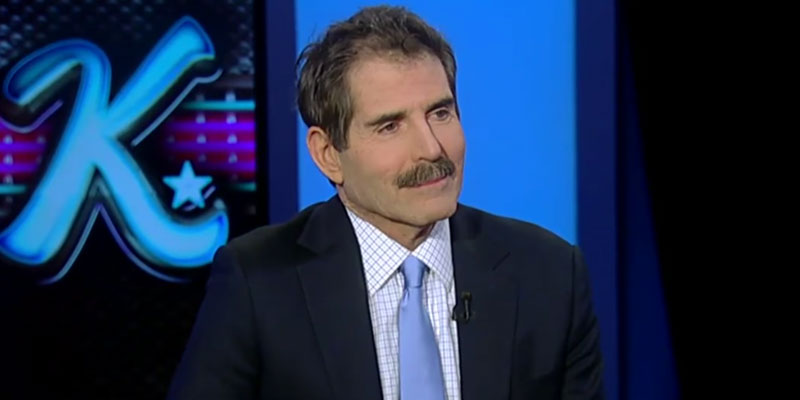
CHARLESTON, S.C. — Sen. Rand Paul, R-Ky., outlined a humble foreign policy doctrine at The Citadel Tuesday, stressing the objective of peace through strength in an attempt to allay fears among some Republicans about his commitment to the military.
The libertarian-minded freshman’s goal before this decorated audience was twofold: To assert his support for the world’s greatest fighting force while making the case for a more prudent approach to global affairs that keeps soldiers out of conflicts that are not in the vital national interest.
“The first and primary function of our government is a strong national defense — bar none,” Paul said to sustained applause as he stood in the well of the military college’s fieldhouse populated with cadets. “But so much of what we do in Washington today is more like an irrational offense.”
Paul lamented sending billions in foreign aid to Middle Eastern countries that “riot and burn our flag,” and cautioned against intervening in violence-torn places — like Syria — where the lines between allies and enemies are blurred and an achievable goal is murky.
“America has never backed down from a fight — but we should never be a nation that is eager to get involved in nations’ conflicts that work against our own national security,” he said.
While Paul had made many of the speech’s points previously, the setting — one of the nation’s most renowned military academies which also happens to reside in an early presidential primary state — undoubtedly heightened their significance.
Paul is a probable Republican 2016 presidential candidate who is well-aware that one of his obstacles will be overcoming the perception he’s a replica of his father, former Rep. Ron Paul, who espoused isolationist foreign policy views that fell far outside the mainstream of the GOP.
The elder Paul barely competed in the 2012 primary here, whereas the son is appearing to make the Palmetto State a central part of his strategy. This was his fourth visit to South Carolina in 2013. A June address to party stalwarts in Columbia was similarly almost exclusively devoted to foreign affairs and the nation’s fight combating terrorism.
But these remarks — which ran just under 20 minutes — could be easily characterized as Paul’s first major foreign policy speech of his yet to be announced presidential campaign.
It did not go unnoticed that Paul briefly mentioned the unabashed loyalty of Israel – “one friend that never leaves our side” — which one attendee remarked was an important signal of his commitment to the enduring U.S. alliance.
In addition, Paul repackaged a previous blistering attack against the Democratic frontrunner for president — former Secretary of State Hillary Clinton. He laid the blame squarely at her feet for the attack on the U.S. consulate in Benghazi last year, which took the lives of four Americans.
“When Hillary Clinton was asked for more security, she turned the ambassador down. Under cross-examination, she admitted that she never read the cables asking for more security,” Paul said. “I find it inexcusable that security requests were denied. I find it a clear dereliction of duty. Failure to provide our ambassador and his mission with adequate security should preclude her from ever holding office again.”
The cadets rewarded that pronouncement with thunderous applause.
Furthermore, the tragedy provided Paul with a rare instance where he’s advocated for a larger military footprint.
“I continue to think that that mission in Benghazi should have been supported by the military,” he told reporters afterward. “Libya was a war, for goodness sakes. [Our ambassador] was guarded by the militia of Libya. Do you think Hillary Clinton goes around the world and was guarded by militias? I think that’s inexcusable that we didn’t have an official guard for the ambassador.”
Yet the sweeping theme of Paul’s speech was a call to de-escalate obligations abroad to focus on more pressing and immediate priorities at home.
Invoking Dwight Eisenhower and Ronald Reagan, he embraced a philosophy of war only as a last resort and reminded attendees that the 40th president called “peace . . . the highest aspiration of the American people.”
“Reagan’s been hijacked by all different spectrums of the Republican Party,” Paul told reporters afterwards. “But I think if you read Reagan carefully . . . I don’t think he was eager for war.”
Paul said a drawdown from entanglements overseas would allow the country to “do things to make us safer at home and abroad.”
To that end, he announced that in the coming weeks he would propose the formation of a task force to produce a plan to “modernize our military and strengthen our defenses.” Included in that plan will be a call for an audit of the Pentagon to eliminate waste and focus precious resources on “true defense needs.”
The military budget has always been a sacred cow, especially within the Republican Party. But Paul believes public opinion among conservatives is changing on that front, in the wake of two costly, prolonged wars and the country’s mounting debt crisis.
“Defense is the most important thing we do, it is a primary constitutional function of the government, but that doesn’t mean a blank check,” Paul said.
Paul’s libertarian-influenced worldview has already drawn the ire of New Jersey Gov. Chris Christie, a potential 2016 rival, who dubbed the approach “dangerous.”
But Michigan Rep. Justin Amash, an outspoken second-term House member and Paul ally who has been a thorn in the side of the GOP establishment, said it’s Christie, in fact, who now holds the dangerous political position.
“The popular position within Republican districts is the Rand Paul position,” Amash said in an interview. “His position is a winning position in a Republican primary.”
Follow Dave’s blog at TheRun2016.com







